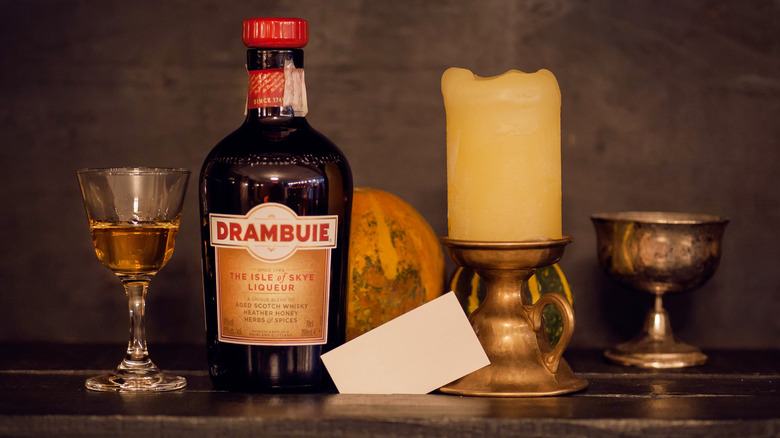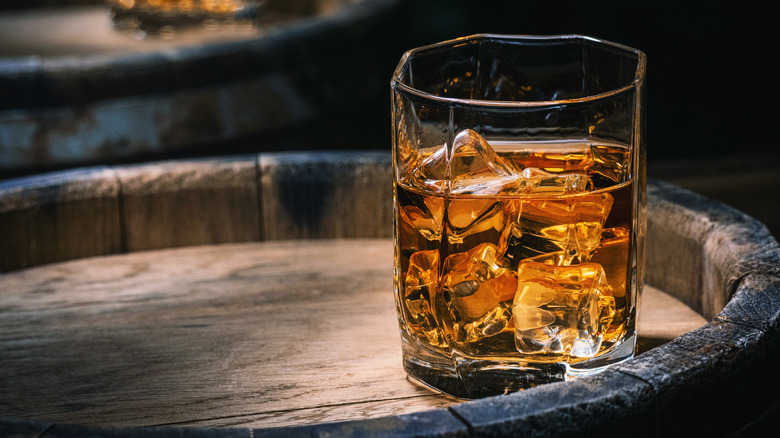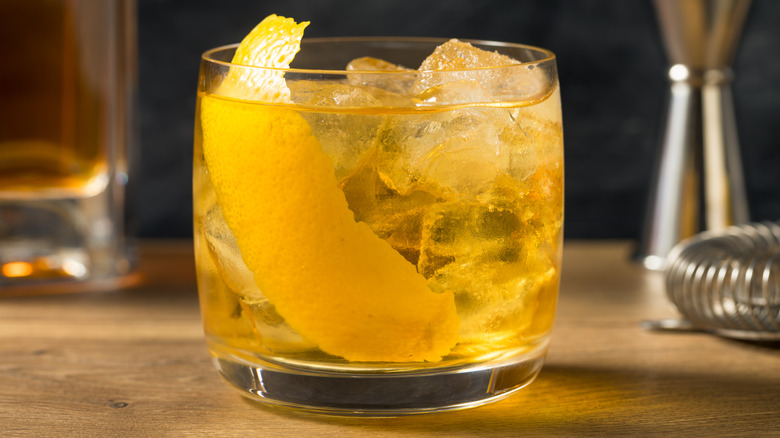The Reason You Can't Substitute Drambuie Scotch
When it comes to Scotch whisky, Drambuie stands in a class of its own. Its history traces back to the 18th century on Scotland's Isle of Skye. During that time, Prince Charles Edward Stuart — better known as Bonnie Prince Charlie and a scion of the exiled Stuart dynasty — fled to the island after his failed attempt to retake the British throne during the Jacobite uprising. It was on this island that he allegedly gifted the secret recipe for Drambuie to the MacKinnon clan as a token of gratitude for their support. Initially, the clan produced the liqueur solely for personal use. It wasn't until a century and a half later that it became commercially available. The name "Drambuie" is actually believed to be an anglicization of the Scottish Gaelic phrase "an dram buidheach," which translates to "the drink that satisfies."
Indeed, Drambuie does satisfy. The liqueur distinguishes itself from other traditional Scotch whiskies with its unique flavor profile. Whether served neat with a twist or incorporated into cocktails like the rusty nail, Drambuie's distinctive — and secret — blend of herbal, floral, and spicy flavors makes it one of a kind. Because of its singular profile, there's simply no suitable substitute for Drambuie in any mixed drink.
What makes Drambuie unique?
At its core, Drambuie is a whisky liqueur, meaning its primary ingredient is Scotch whisky — specifically, selections from the Speyside and Highland whisky regions in Scotland. An infusion of heather honey — which itself has been used as a national symbol of Scotland — helps give the liqueur its distinctive sweetness and smooth texture.
To achieve its signature complexity, Drambuie incorporates a secret blend of herbs, spices, and oils. This closely guarded combination is known to only three people, but attempts to recreate the formula often include angelica root, fennel, and rosemary. The infusion of these botanicals delivers a flavor that features herbal, spicy, and floral notes.
Thanks to its unique flavor profile, it's nearly impossible to find a suitable substitute for Drambuie. Even other honey-infused Scotch whisky-based liqueurs, like Glayva, don't quite hit the same marks, since Glayva is softer and more tangerine-forward. While you can mix Scotch with high-quality honey to achieve a sweeter, silkier profile, nothing can truly replicate the distinctive taste of Drambuie.
Serving Drambuie
Drambuie is versatile enough to be sipped neat or over ice, but it also shines in a variety of cocktails. The most famous of these is the rusty nail, a simple yet elegant mix of Drambuie and Scotch whisky — perfect as an after-dinner digestif. To make one, blend Scotch and Drambuie in a two-to-one ratio, pour the mixture into an ice-filled tumbler, and garnish with a twist of orange peel.
Alternatively, you can pair Drambuie with coffee, combining the liqueur's unique flavor with the slight bitterness of coffee to enhance both ingredients. To create this drink, known as Scotch coffee, combine cooled fresh brewed coffee, Drambuie, lemon juice and vodka in an ice-filled cocktail shaker. Shake well and pour the result into a tall cocktail glass. Or, if you have some champagne on hand, pour some Drambuie into a champagne flute and fill the rest of the flute with ice cold bubbly to create a Bonnie Prince Charlie.



